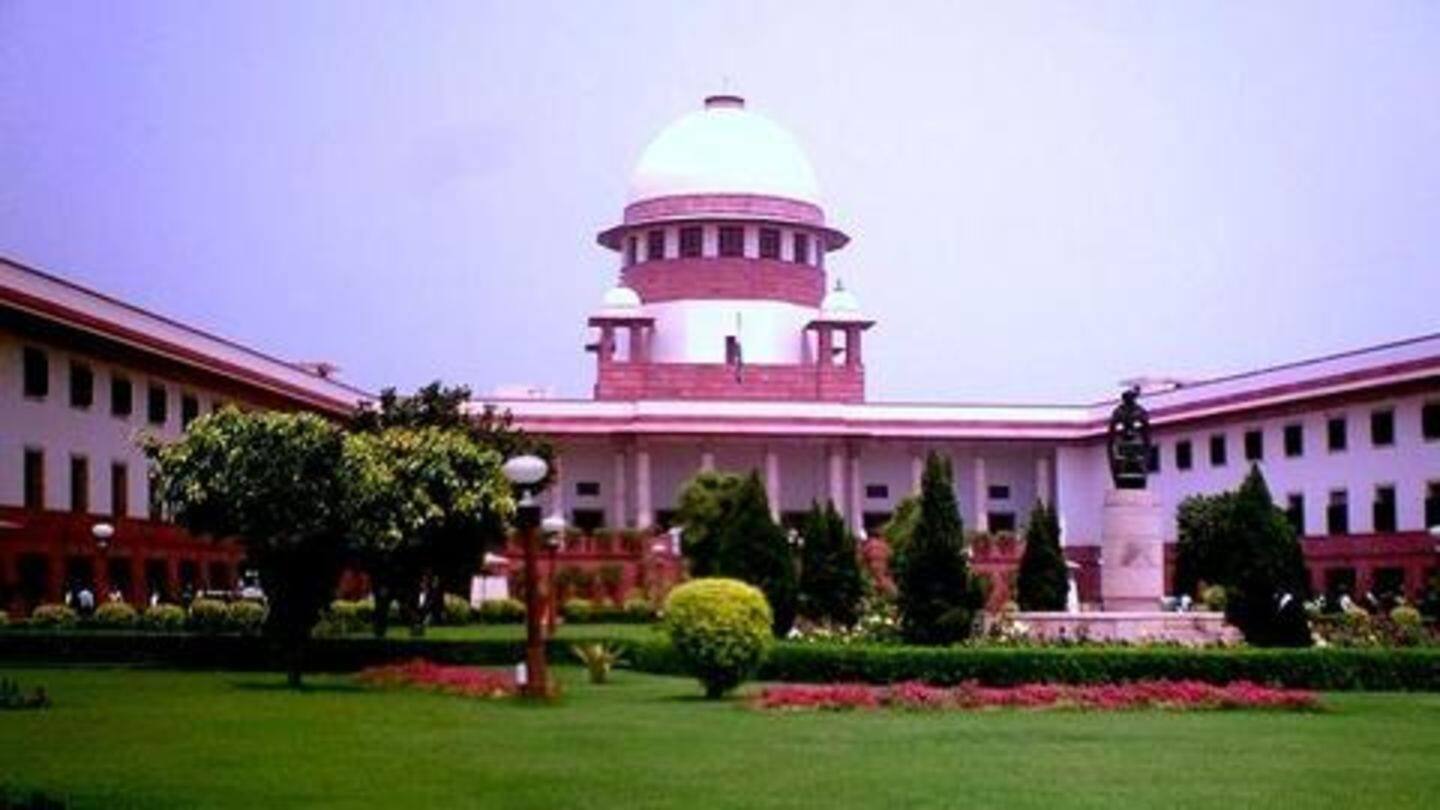
Petition filed in SC seeking quashing of Center's 'snooping order'
What's the story
On Monday, a public interest litigation (PIL) was filed before the Supreme Court challenging the constitutionality and legality of the Center's December 20 order that granted sweeping surveillance powers to 10 Central agencies. The PIL, filed by advocate M L Sharma, has asked the apex court to quash the order. Here are the details.
Order
What the December 20 order was all about
The December 20 order granted powers of "interception, monitoring and decryption of any information generated, transmitted, received or stored in any computer". The agencies empowered are the Intelligence Bureau, Narcotics Control Bureau, Enforcement Directorate, Central Board of Direct Taxes, Directorate of Revenue Intelligence, CBI, National Investigation Agency, Cabinet Secretariat (R&AW), Directorate of Signal Intelligence (in Jammu and Kashmir, North-East and Assam only), and the Delhi Police Commissioner.
Circumstances
Under what circumstances can the government snoop on people?
The aforementioned powers have been granted Section 69 (1) of the Information Technology Act, 2000. The Section essentially allows the Central government to initiate investigations in the "interest of the sovereignty or integrity of India, defense of India, security of the state, friendly relations with foreign states or public order or for preventing incitement to the commission of any cognizable offence relating to above or for investigation of any offence."
Plea
The PIL has called the order illegal and unconstitutional
In the PIL, Sharma claimed that the December 20 order was "illegal, unconstitutional and ultra-vires to the law". The petition further states that the order "must be tested against the fundamental right to privacy", and that it should be quashed in the name of justice. The PIL also seeks to prohibit Central agencies from initiating criminal proceedings/inquiries/investigations against anybody based on the order.
Allegations
Sharma has also alleged political motives behind the order
Apart from the aforementioned claims, Sharma also alleged that the order was aimed at increasing the Modi government's hold on the country. He alleged that the order was meant to protect the "political interest and object of the present executive political party", and that it was a ploy to win the upcoming general elections by cracking down on all forms of dissent.
Quote
Sharma has alleged dictatorial tendencies, and 'slavery'
Sharma's petition also alleges that the order has been issued to "find political opponent, thinker, and speaker to control entire country under dictatorship to win coming general election under an undisclosed emergency as well as slavery which cannot be permitted within the Constitution of India."
Response
The SC has said that the plea is not urgent
However, despite Sharma's plea to urgently quash the order, the Supreme Court registrar said that there was "no urgency in the case". Interestingly, Sharma has not had the best track record with petitions in the Supreme Court, and was recently reprimanded by the apex court for filing "frivolous" petitions. The SC had also slapped a Rs. 50,000 fine on Sharma for the same.
Contention
A war of words has erupted over the order
The order has indeed been a contentious one, and a political war of words has broken out over it. While Congress chief Rahul Gandhi has accused the Modi government of trying to create a police state through mass surveillance, the Center has hit back, saying that the order is a mere repetition and codification of mass surveillance rules passed by the UPA government in 2009.